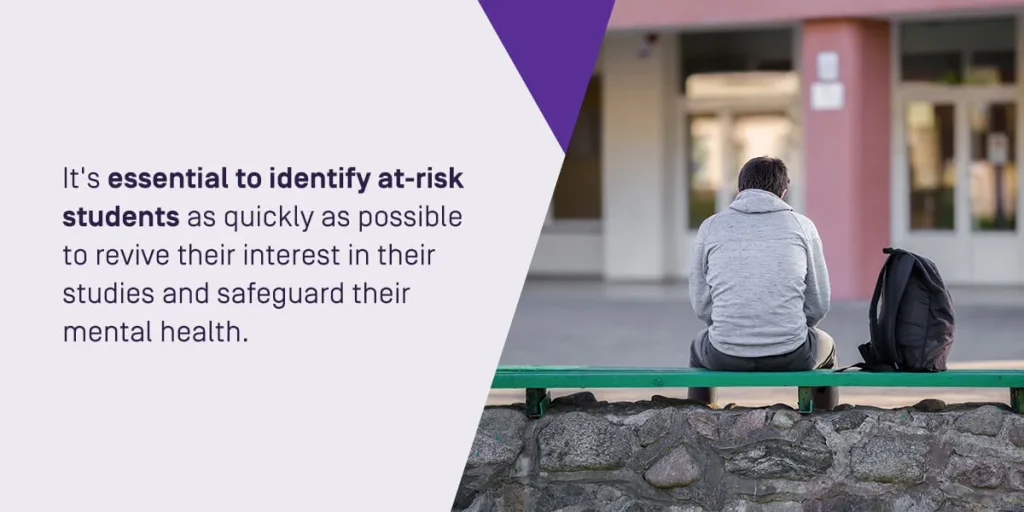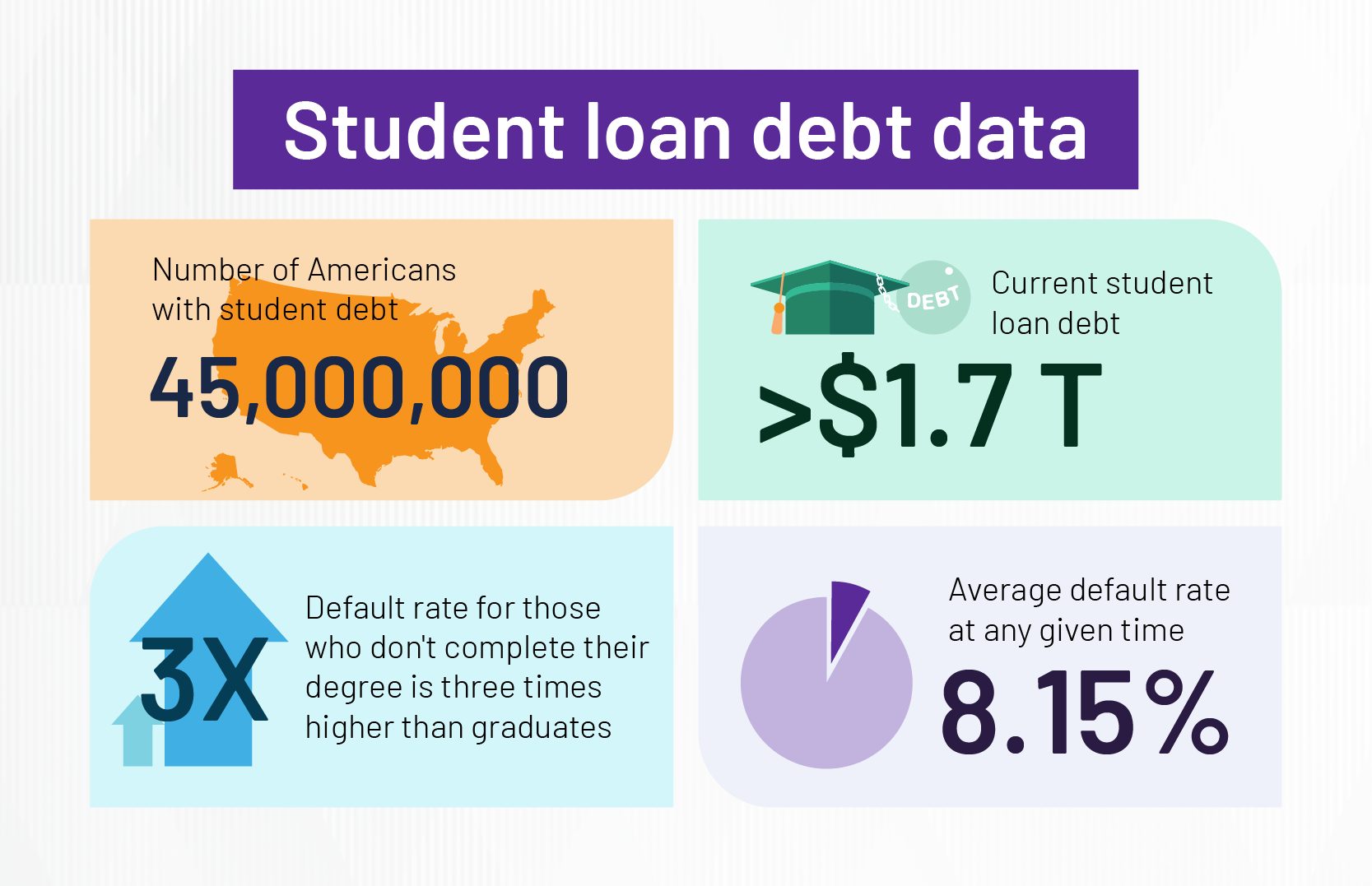Gifted students exhibit a high aptitude, excelling in one subject or several. While it’s easy to think that good grades reflect a healthy headspace, gifted students often master the skill of hiding their struggles.
Helping gifted students succeed can be challenging, as they typically have high expectations for themselves and their environment. They want to overcome challenges without encountering failure. They’re often hard on themselves when answers don’t come easily or if they don’t receive the score they were hoping to get. When any setback feels like a failure, it can be easy to get discouraged from trying again.
You can keep these students on track for academic success when you know how to identify them, understand why they’re at risk, and have strategies to keep them engaged.
Why Gifted Students Drop Out
Gifted students tend to adopt one of three mentalities that prohibit them from exceeding in education. Some students struggle to develop an interest in course material they find understimulating. Those who never felt challenged before they arrived at a higher education institution may become discouraged when they need to try harder. Others become overwhelmed by a fear of failure. Rather than pushing to earn their grades, these two final mindsets may lead students to drop classes when they do poorly on a test or quiz.
Other common causes of gifted student dropout include:
- A lack of social-emotional support
- A reduced feeling of being “special”
- Frustration with repetitive course material
- Struggles with balancing work and school life
- Having to retake courses due to untransferred credits
Identifying Gifted Students at Risk
Students who fear failure are more likely to experience anxiety and perfectionism. However, since many of these students quickly learn to hide their struggles and give the impression that they’re doing well, it can be challenging to discover when a student needs your help.

It’s essential to identify at-risk students as quickly as possible to revive their interest in their studies and safeguard their mental health. Some signs to watch for include:
- Falling grades: A change in examination and assignment grades can indicate that a student is struggling. If a student who typically earns an A starts to fall into the B or C range, that may be a sign they’re losing interest or facing a discouraging challenge.
- Anger and apathy: Gifted students who consider dropping out may be angry at themselves and their environment, feeling that the school system has failed them or that their efforts aren’t being recognized or affirmed. These students may show signs of depression or become easily defensive. Even when still enrolled in school, these students may stop showing interest in their education and activities.
- Withdrawal: At-risk students might provide inconsistent work or fail to submit their work entirely. They may look “spaced out” during class or isolate themselves from other students. These students may have a lowered sense of self-esteem that causes them to criticize themselves and others.
Identifying gifted students at risk is essential to finding a solution that works for them. While some at-risk students may require more challenges and the ability to make more decisions, others may benefit from counseling or spending time with their peers. There are no one-size-fits-all solutions — each student needs unique and individualized solutions that will work for them.
Engagement Strategies for Gifted Students
Supporting gifted students at risk is vital to their success. By identifying the issues they may be facing and creating solutions to overcome them, you can show these students that they have support and alternatives to dropping out.
Providing students with actionable solutions puts some control back into their hands and encourages them to engage with their environment. Knowing they have the tools to aid them in their education will improve their chance of success.
Consider these engagement strategies for at-risk gifted students:
- Speak up: Encouraging students to speak with their teachers or professors about course material can help them become more engaged. Discussing the topics can help them discover areas they’re interested in learning about.
- Task assignment: Keep students on track by having them perform tasks that forward their education. Those tasks can include registering for financial aid, completing a scholarship essay, applying for a position in a club or program, or anything else that will encourage their academic growth.
- Stay connected: Facilitate communication with students about their success and challenges. Leave the door open for honest discussions with advisors, faculty, or success coaches who understand one-on-one connections and the academic needs of students.
- Find feedback: Provide students with opportunities to give feedback about classes and course loads by incorporating surveys and evaluations.
- Encourage relationships: Gifted students can often feel alone in their struggles. Help gifted students connect with others who need challenges. Making deeper connections in classes or on campus will help them find value in their relationships and personal struggles.
- Challenge failure: With so many gifted students afraid of failure, you should actively encourage them to find the silver lining. Failure is a part of life and embracing the learning experience is a much healthier way to deal with failure than giving up entirely.
Different students are at varying levels of risk. By identifying a student’s risk level, administrators and coaches can establish the best set of actions to take to encourage that student’s success.

Request a Demo of Student Success & Engagement
Watermark is a team of people who know higher education and relate to the challenges that many students face. We’ve made it easy to track attendance, create custom reports, and receive alerts if a student falls off track. You can use our Student Success & Engagement software to keep your students engaged, improve student retention, and increase the chances of certificate and degree completion.
We value people over numbers and recognize that technology is only one piece of the puzzle that helps drive student success. We’ve made it easy for you to access each student’s information in real-time and encourage academic growth. Our software also ensures that the correct information always reaches the staff members, success coaches, and advisors who can make a difference, helping you prioritize outreach to students who need it most.
Request a demo of Student Success & Engagement to identify and engage with the students who need your support. Connect with your students and encourage them to overcome their challenges.















































































































































































































































































































































































































